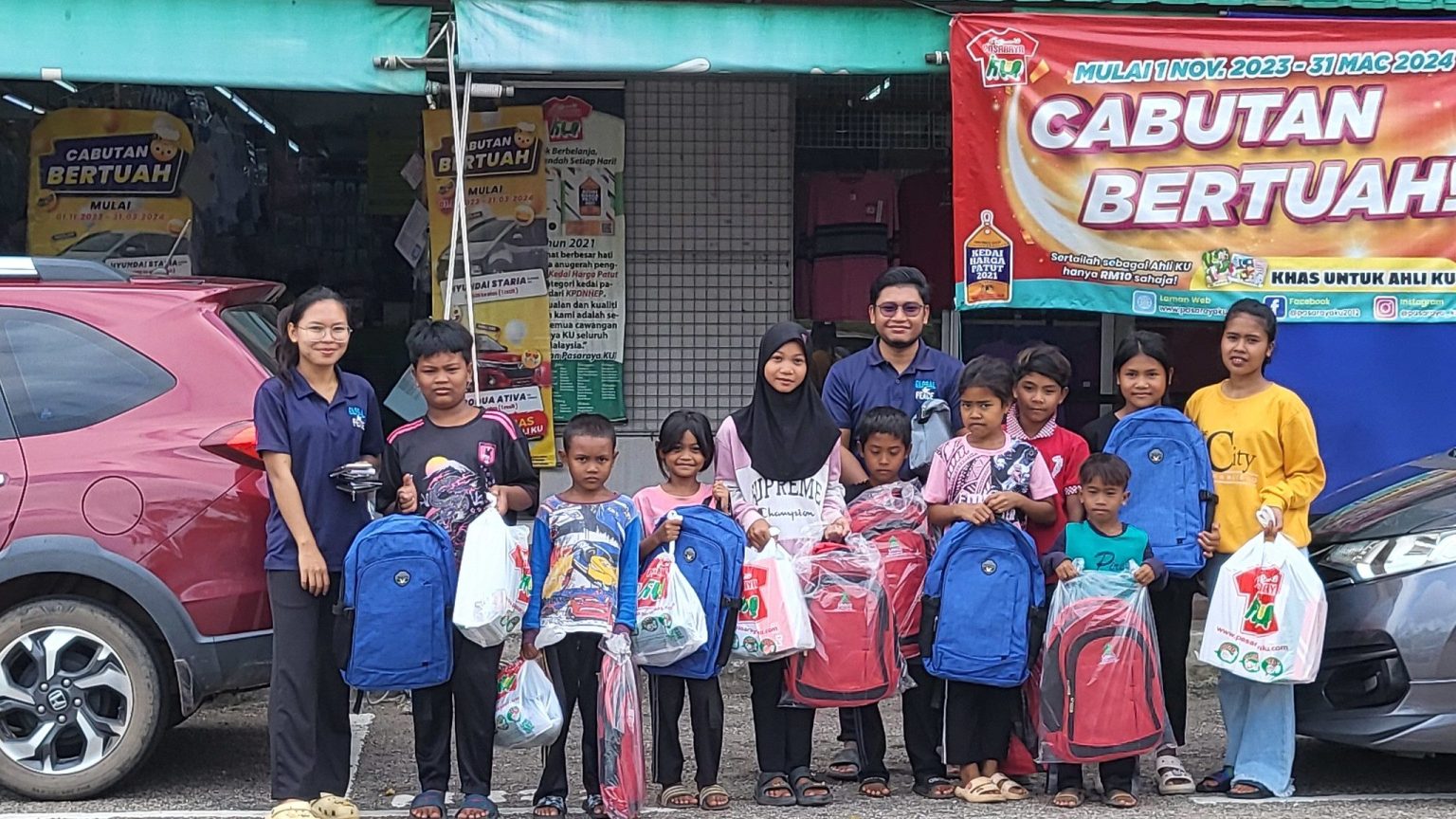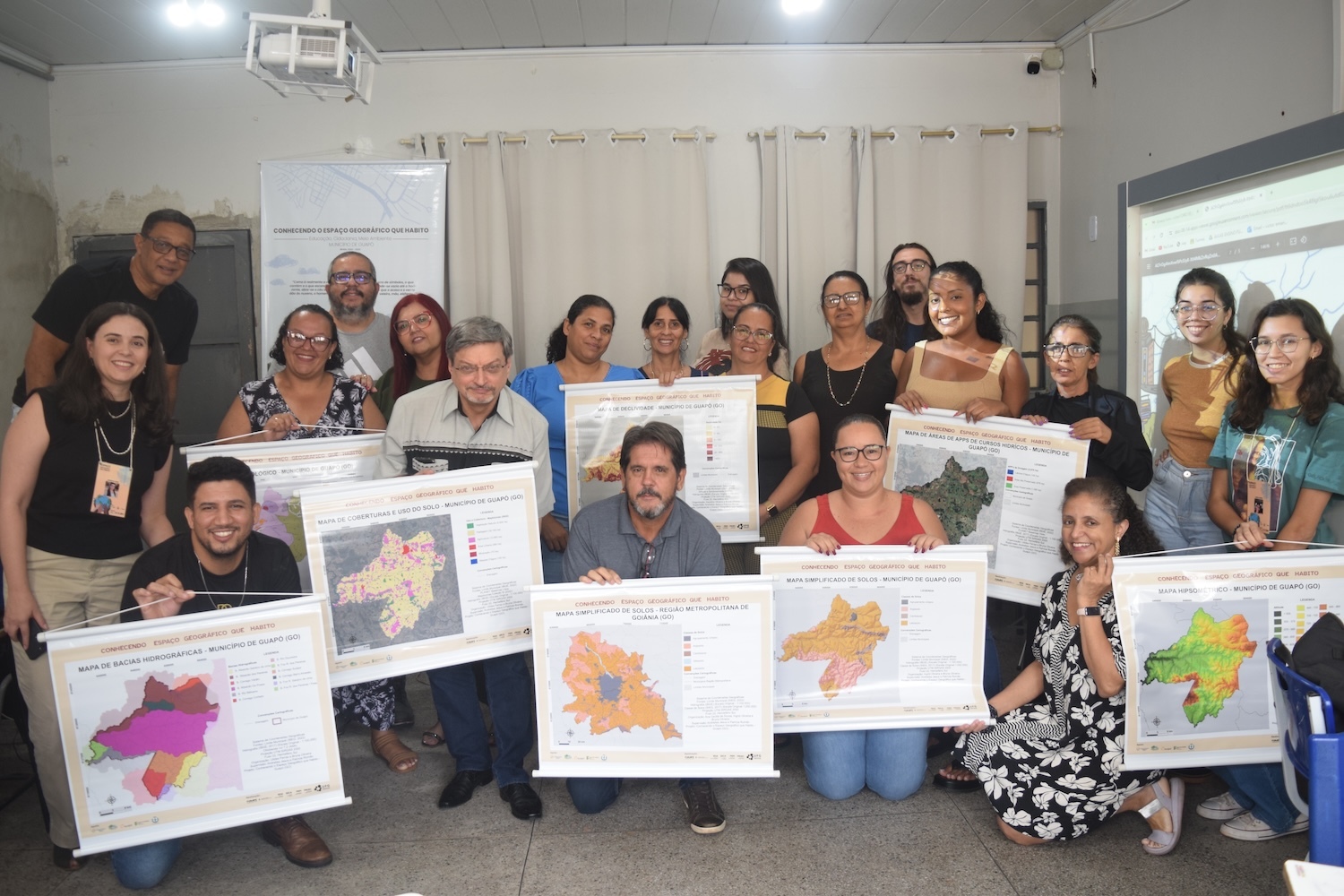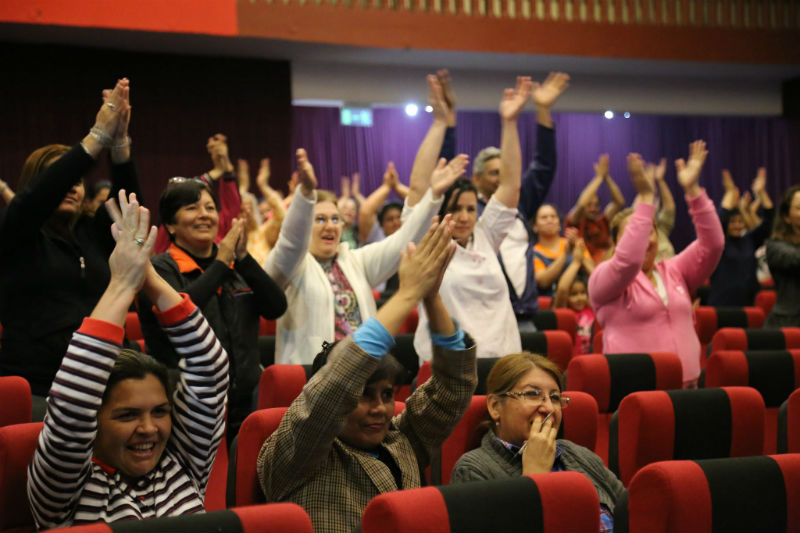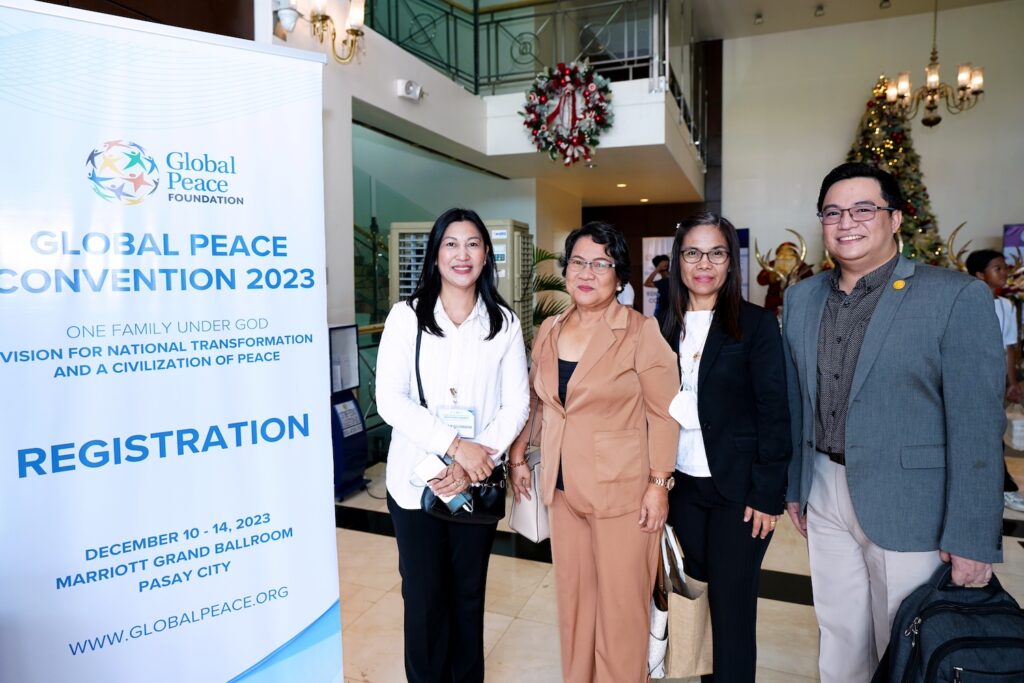
Registration booth photo at the Educators Congress
It has been a while since I graduated from my own university, so it felt good to be back on a university campus again. I had the opportunity to attend the Global Peace Convention 2023 Educators Congress at the University of Makati. It was December, and the university was decorated to celebrate the Christmas season. As I walked on the campus, I heard a choir group practicing their melodies, passed by a digital art exhibition, and navigated the constant rush of students to go to their respective classes. I made my way through the hallways until I reached a line of people ready for the Educators Congress.
More than 300 people from diverse sectors had joined in person, and many more were watching it online. The opening program featured many prominent speakers, and they all emphasized that peacebuilding and peace education go hand in hand. They brought up examples like Mahatma Gandhi and Martin Luther King Jr. to help us reflect on how conflict and differences can be addressed without violence but rather by empathy, sensibility, and activity.
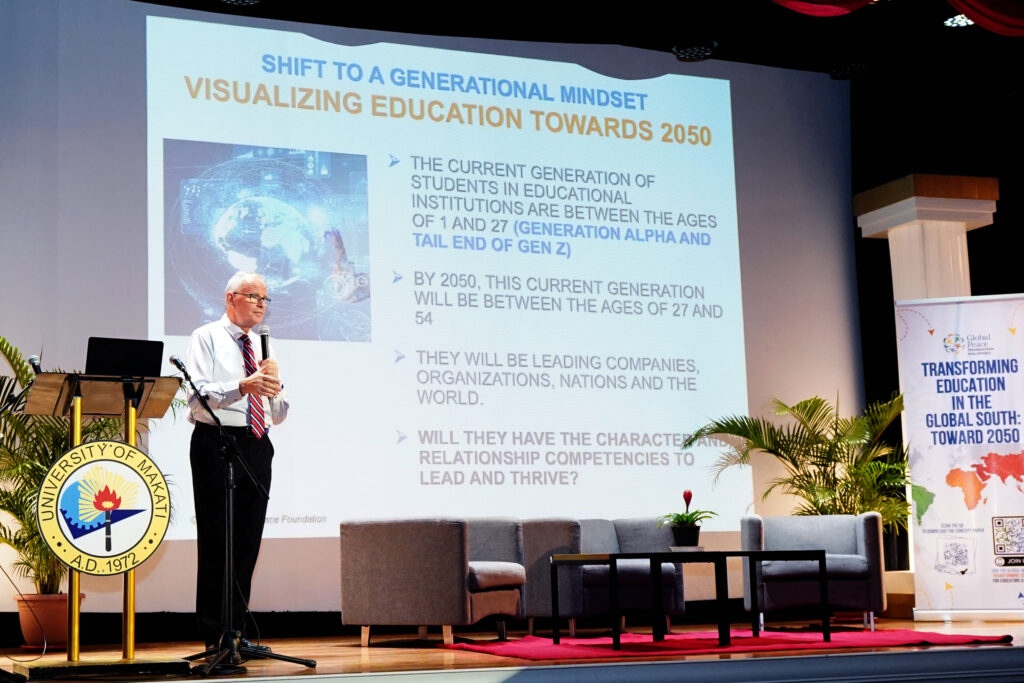
Dr. Tony Devine on the first session topic of Educators Congress: Transforming Education in the Global South: Towards 2050
With six sessions lined up, the first session highlighted “Transforming Education in the Global South: Towards 2050,” in which Dr. Tony Devine gave an insightful talk on the Theory of Transformation. He explained the “totality of who we are” and that the purpose of education is to develop all four core human dimensions: spiritual, emotional, mental, and physical. He said, “We start with our own transformation. Us Educators with rock-solid foundation of character.”
In the “Innovations in Sustainable Education: Empowering Future Leaders for Global Harmony” session, Wouter T. Lincklaen Arriens, founder and CEO of Transformation First, shared his personal story of transformation and innovation while working at the Asian Development Bank. He gave three crucial tips on growth:
- Know your mindset, beliefs, and challenges.
- Know your characters’ strengths and weaknesses, which is the shadow material.
- Team up with learners
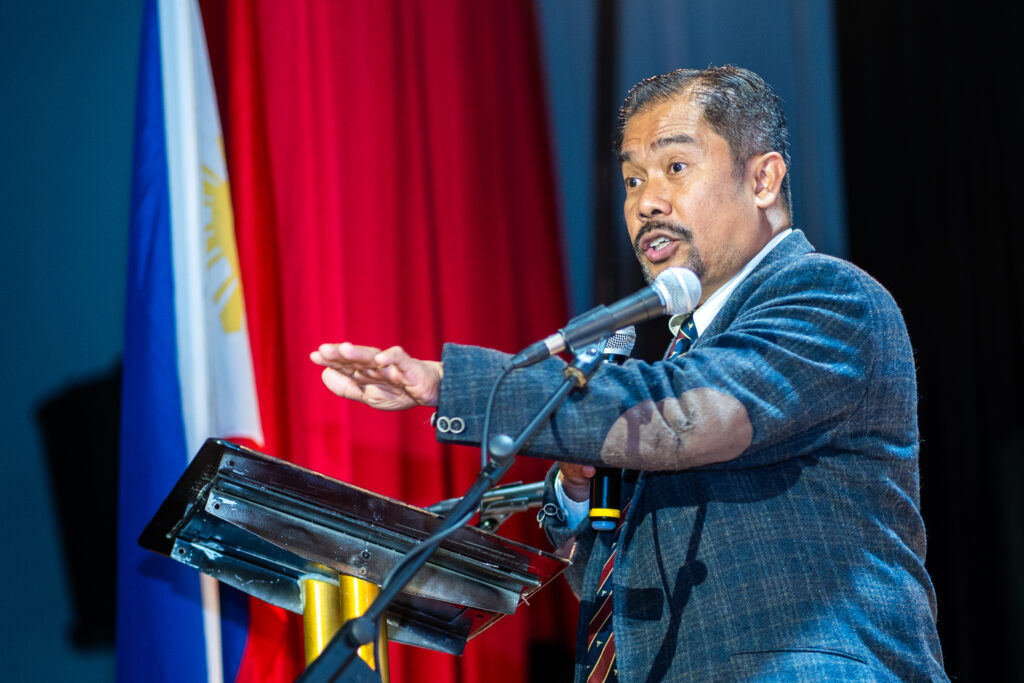
Dr. Tirso A. Ronquillo, an ASEAN Engineer and Professional Electronics Engineer, serving as the President of Batangas State University and the President of the Philippine Association of State Universities and Colleges (PASUC), speaking on the topic: Innovations in Sustainable Education: Empowering Future Leaders for Global Harmony
Joining him, Dr. Tirso A. Ronquillo, ASEAN engineer and President of Batangas State University, talked about the Innovative Education Framework. He stressed that the purpose of education is to raise and develop meaningful citizens where they assume meaningful roles that come from empathy and mutual peace.
In a session on “Applying Values Based Peacebuilding in the Korean Peninsula,” David Maxwell, retired US Army Special Forces Colonel talked on the free and unified Korea. He gave an overall picture of the North and South dynamics. He spoke on strategic design for a unified Korea and shared that it was imperitive firstly to “Appreciate the Context, i.e., North and South Korea,” and secondly to “Understand the Problem, i.e., the Big 5 (war, regime collapse, human rights, asymmetric threats and unification),” and finally, develop an approach with action.
Emanuel Pastreich, President of The Asia Institute, added on the discussion pointing to Dr. Hyun Jin Preston Moon’s book “The Korean Dream.” He said that “Korea is important because it is a unique possibility of creating a new nation that will bring forth innovation, but also make it more human and have values that are rooted in family…that which has brought us the transformative values.”
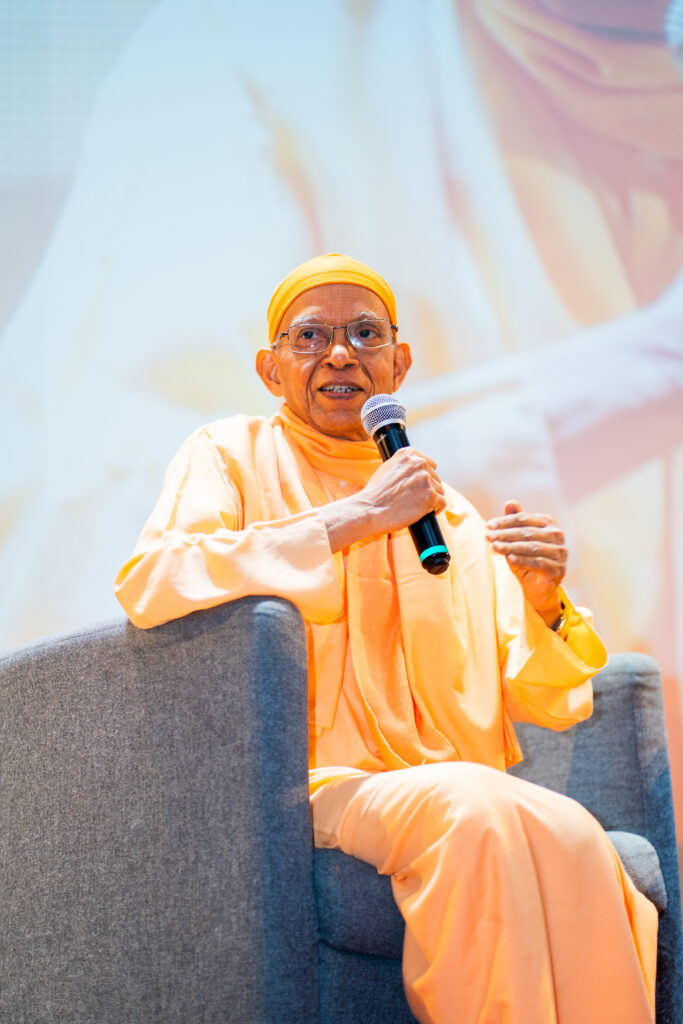
Swami Shantatmananda, the current Secretary of the Ramakrishna Mission in Delhi, India, speaking on the session topic: Empowering Global Citizens for Peace and Reconciliation Through Universal Principles and Values
Another session on “Empowering Global Citizenship for Peace and Reconciliation” focused on unity under the vision of “One Family Under God.” Despite diverse cultures, there are similar ethical frameworks. In the Philippines, the phrase ‘Maka-Diyos, Maka-Tao, Maka-Bansa,’ is similar to the Indonesian Pancasila and the Indian motto, ‘Vashudaiva Kutumbakam.’ All these phrases describe universal principles and shared values with compelling ideas of peacebuilding. Rev. Canice Enyiaka said, “Peacebuilding is a comprehensive concept with progressive approach, one which transforms and uplifts.” Adding to the discussion, Imam Dr. Talib M Shareef, President and Imam of Masjid Muhammad, The Nation’s Mosque in Washington, USA, said that interfaith is faith coming together, and peace is a universal logic for human life and progress. This is what needs to be educated: to respect each other and to listen to each other. Swami Shantamananda, Secretary of Ramakrishna Mission in Delhi, India, shared his insights on education and technology. “All ability, knowledge, power, education, everything. They are only a catalyst that can bring what is already inside.” He emphasized the uniqueness of each child, that which is inherent to them, and said, “We need to give new life to education, where one can learn, probably around the world, more equitable world, peace and lasting feeling in the world.”
In the “The Role of Educational Institutions in Promoting Civic Engagement and Global Harmony” session, Dr. Florida Labuguen, Executive Director of the Philippine Society of NSTP Educators, gave a remarkable presentation on youth volunteerism and alliances to give spaces for youth to explore and find themselves. She called to action for campuses, local governments, universities, and associated partners to let students take the lead and let them engage for service and growth.
Dr. Carmelo John E. Vidal, Dean of Graduate School at the University of Luzon, joined in and talked about peace education and incorporating it into the education curriculum. He shared the open modules for Peace Education. He stressed that peace education and the modules help “to learn and un-learn with behaviors and peace for all and peaceful patterns of thinking that eventually transforms people’s mindset.”
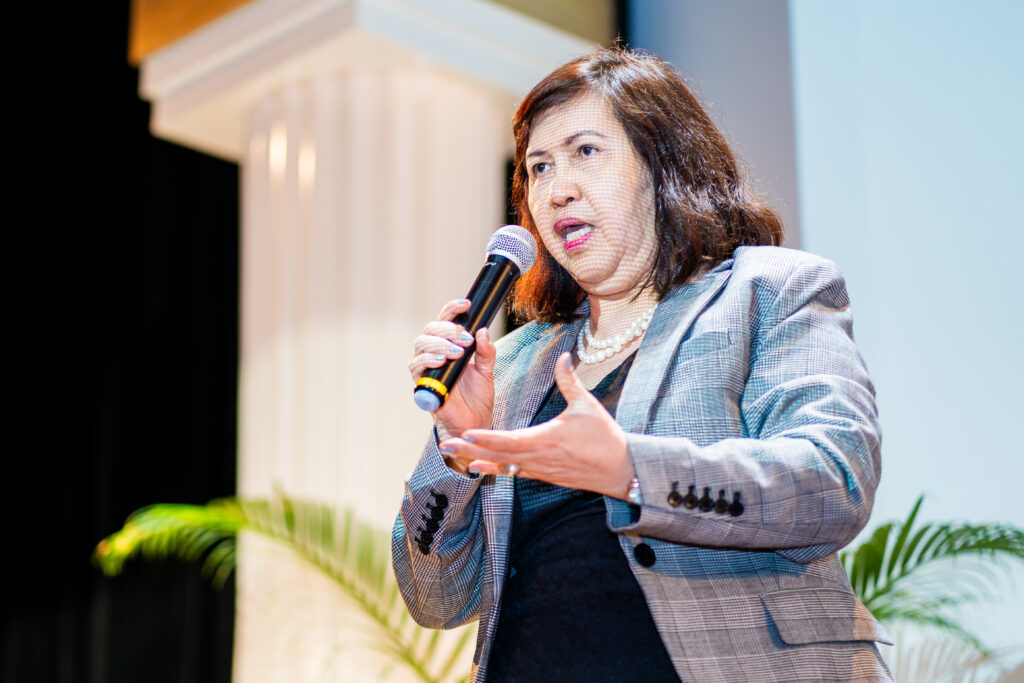
Dr. Florita Miranda speaking on the topic of Digital Literacy for Peace: Leveraging Technology to Connect, Educate, and Build Bridges Worldwide
In the final session, “Digital Literacy for Peace: Leveraging Technology to Connect, Educate and Build Bridges Worldwide,” Dr. Florita talked about the APAMEI Model (Asia Pacific Association of Methodist Educational Institutions). She shared that the APAMEI strives to use technology for peace and called all peacemakers to use technology for positive peace by transcending violence and making peace a reality in small ways, social transformation in the age of Artificial Intelligence.
The day concluded with a screening of the movie Jun-Ai: a Japanese movie of love beyond borders and war. It was a good ending to the day full of sessions. The knowledge-packed series covered important topics on applying peacebuilding in Korean unification, transformation in education, empowering educators, and navigating the digital world for the better. It was quite a scene to witness the signing of the pledge of commitment by the attendees, educators, and personalities. If we are able to bring the knowledge and dialogue from the Congress to life and implement it in communities worldwide, the future of education does indeed seem bright.
Read more about the Global Peace Convention 2023

